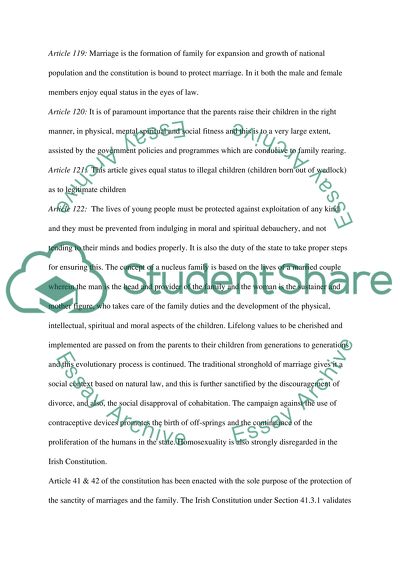Cite this document
(Irish Constitution: Family Law Assignment Example | Topics and Well Written Essays - 2250 words, n.d.)
Irish Constitution: Family Law Assignment Example | Topics and Well Written Essays - 2250 words. https://studentshare.org/law/1525996-family-law
Irish Constitution: Family Law Assignment Example | Topics and Well Written Essays - 2250 words. https://studentshare.org/law/1525996-family-law
(Irish Constitution: Family Law Assignment Example | Topics and Well Written Essays - 2250 Words)
Irish Constitution: Family Law Assignment Example | Topics and Well Written Essays - 2250 Words. https://studentshare.org/law/1525996-family-law.
Irish Constitution: Family Law Assignment Example | Topics and Well Written Essays - 2250 Words. https://studentshare.org/law/1525996-family-law.
“Irish Constitution: Family Law Assignment Example | Topics and Well Written Essays - 2250 Words”. https://studentshare.org/law/1525996-family-law.


